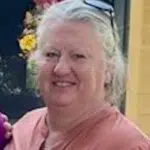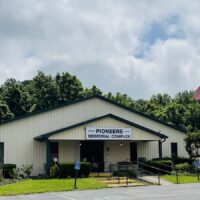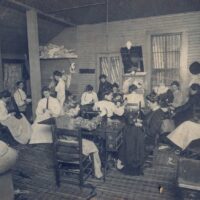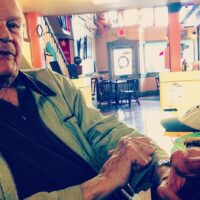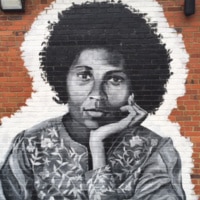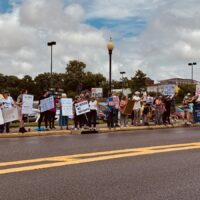In 1850, there were 8,140 enslaved people of color living in Christian County, and more than 150 free people of color. By 1860, as the country teetered on the brink of the Civil War that would explode a few months later, the number of the enslaved had risen to 9,934 and the number of free people of color appeared to have declined.
The descendants of Elisha Wiggins living in the Flat Lick area of southwestern Christian County were one of these free families.
Elisha Wiggins first appears in Christian County records in November 1842, when James Landrum filed suit on Wiggins’ behalf against “G. Corbin” to collect $57 Corbin owed him — almost $2,500 in 2025 dollars.
One month later, on Dec. 28, 1842, “Elisha a man of color” of Trigg County entered a deed in Christian County, wherein he purchased 50 acres from James Landrum for $200.
Elisha Wiggins was born about 1790 in North Carolina, according to his entries in the 1850 and 1860 census enumerations. Although it is not certain whether Elisha was born free or was emancipated, he is likely the man named Elisha noted in Trigg County court minutes and deed as having been emancipated on May 13, 1833, by Sackfield Lindsey.
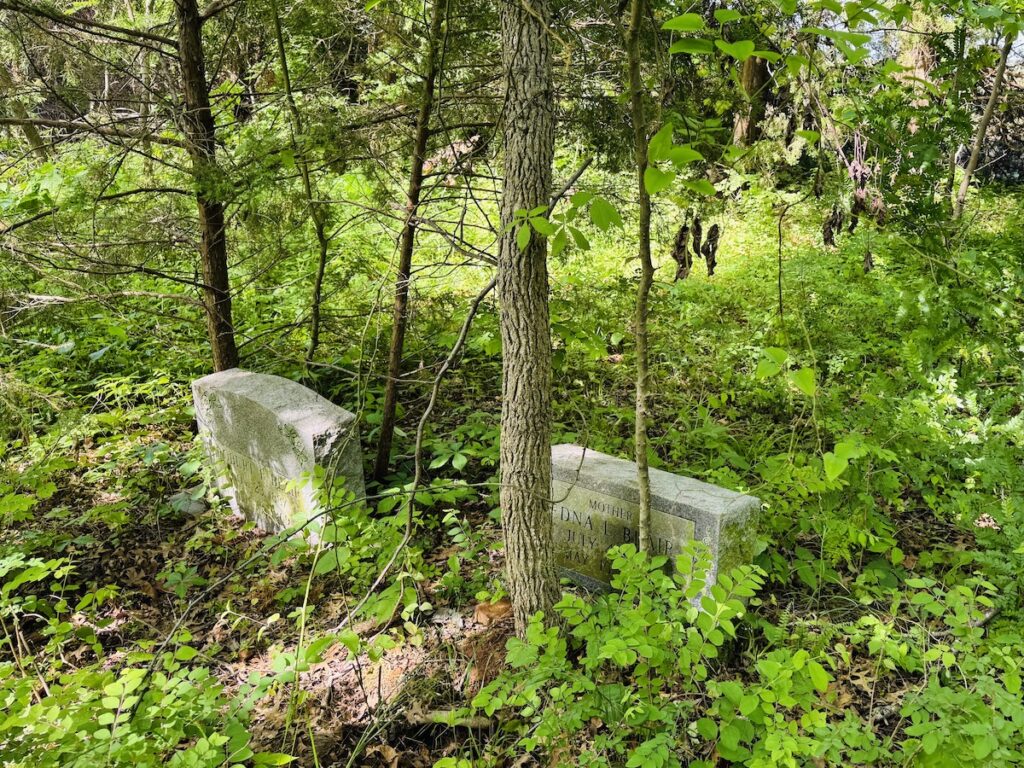
Lindsey was the son of James A. Lindsey, who came from North Carolina, settled on Little River at the Trigg-Christian County line, south of modern-day Pee Dee, and built an early mill on the site.
Sackfield’s eldest brother was arguably Christian County’s earliest and most vocal leader in the Disciples of Christ Church in the early 1830s, which had strong abolitionist views. No records of any other emancipations by Lindsey were noted, however. Lindsey served as one of the witnesses to Elisha’s 1842 land purchase, and the other two resided in the same neighborhood.
Wiggins clearly did well for himself. He is likely the same “Elisha” — no surname noted — who returned to Trigg County Court just four years after his own emancipation on Nov. 13, 1837, to emancipate his wife, Patsey, from bondage.
This suggests that he had saved funds to purchase her, as well as the bond required to emancipate an enslaved person. He was noted in the 1841 Trigg County tax rolls, paying no land tax, but paying tax on two horses.
The next year he bought the first piece of land in Christian County, not far from Pee Dee. Three years later, on April 7, 1845, Elisha again returned to court, this time in Christian County, to emancipate his 23-year-old son, Benjamin. This required a $300 bond, and John T. Stevenson signed the bond as surety.
John T. Stevenson was a well-known Herndon-area farmer who freed his own enslaved people a few years later, and whose son Adlai became the U.S. vice president under President Grover Cleveland in the 1890s.
On Jan. 24, 1849, Elisha entered another deed into Christian County court records, purchasing 58 acres for $250 from William Nance. In just over 15 years since gaining his own freedom, Elisha had purchased and emancipated both his wife and his son, and purchased 108 acres of land.
Elisha and Patsy were enumerated in the 1850 Christian County census with Benjamin. Patsy apparently died soon after that census enumeration, for on March 7, 1855, a marriage contract involving their property was entered into Christian County court records between Elisha and Susanna Allen, a widowed free woman of color. They were married the same day by Judge William W. McKenzie, a well-known south Christian magistrate, judge, and senator in the Kentucky legislature, and a neighbor of the Wiggins family.
Susanna was the widow of Joseph Allen, a Fruit Hill free man of color, and their daughter, also named Susanna Allen, married Benjamin Wiggins on March 27, 1856.
Judge McKenzie also officiated their wedding. Elisha died in about May of 1867, for his will was presented for probate in the June session of court that year, and by that time he had amassed 200 acres of land in “Flat Lick,” between Bennettstown and Pee Dee.
His will was witnessed by four of his neighbors. Sadly, Benjamin did not long survive his father. He died in February 1873, leaving his wife and six children — three sons born before and during the Civil War, and three daughters born afterward.
Benjamin died intestate (which means without a will) and his estate inventory demonstrates the family’s material success: in addition to a Bank of Hopkinsville certificate of deposit worth $1,080, over $400 cash on hand, and notes of loans to neighbors and others worth almost $3,400; the personal possessions included a number of items of furniture, a silver watch, school books, a “looking glass,” buggy and harness, farm wagons, rifle and shotgun, various pieces of farm and logging equipment, saddles, six horses and mules, cattle and other livestock, a tobacco crop, half ownership in a reaper/sower (for planting and harvesting of crops; done by hand by most farmers here at that time), and a sewing machine. The total value of his personal estate, not including the value of the land, was almost $6,500, or about $170,000 in 2025 value.
Judge McKenzie was involved with appraising Benjamin’s estate, demonstrating several decades of interactions between him and the Wiggins family.
Benjamin’s wife, Susanna, died in April 1880, orphaning their six children. At the time of her death, only the two eldest sons, Joseph and Elisha, were adults.
Charles H. Bush, a white neighbor and later Christian Circuit Court judge, himself orphaned as a child, was appointed guardian for the four younger children —John, Martha, Ella, and Emma — with Joseph and Elisha noted as sureties.
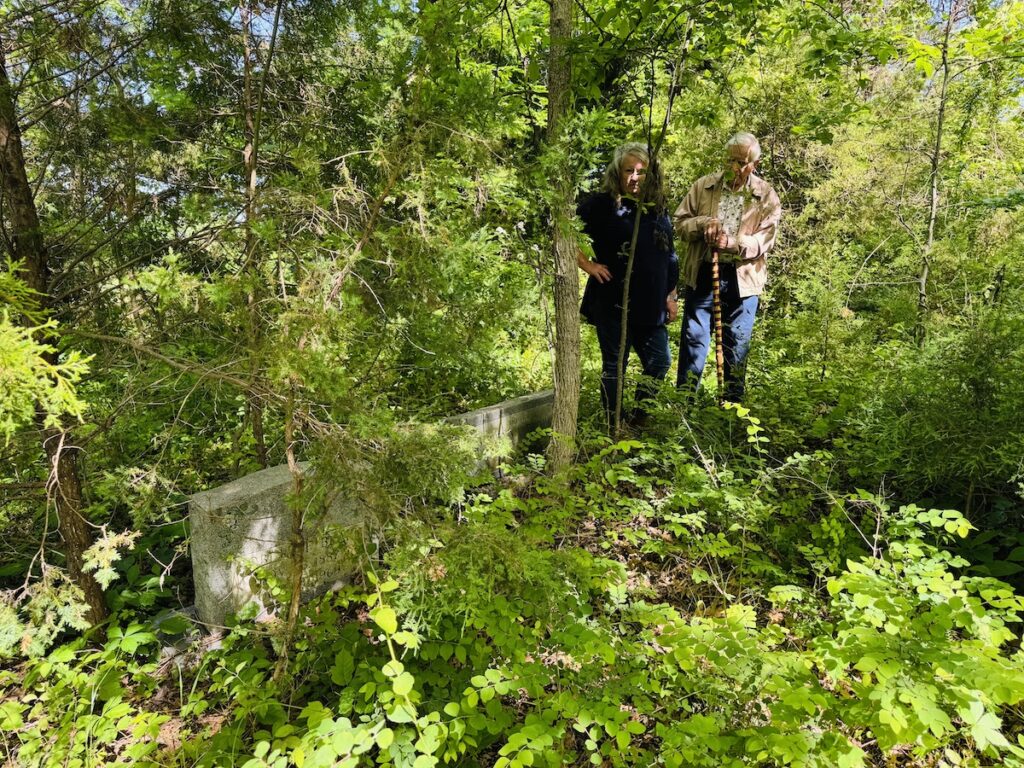
“Guardian,” at this time in court records did not refer to adults assuming physical responsibility for care and rearing of children, but instead as a caretaker of the property in reserve for a minor. This typically involved property or money left to a minor from the estate of a parent or grandparent.
Joe and John later (1883 and 1884) sold Bush their one-sixth undivided interest in the 200 acres of land inherited from their father and grandfather, which he held and sold back to their brother Elisha in 1888.
Judge Bush also had business interactions with the family, particularly the younger Elisha, over decades. In 1892 the remaining sections of the original property were divided, and Elisha purchased his sister Emma’s portion from her and her husband, Lewis Gee, in 1896.
In the end, Elisha had four of the six equal shares of the original estate, referred to in the deeds as “the landed estate of Elisha Wiggins Sr., dec[eased],” and one of the deeds involving Emma’s portion specifically notes the family graveyard.
Several, if not all, of Benjamin and Susanna’s six children remained in Christian County. The eldest, Joseph, married Katherine Averitt; Elisha married Joyce Williams; no marriage record was found for John; Martha married Morris Sanders; Ella married Zach Steger, and Emma, the youngest of Benjamin’s six children, married Louis Gee, and later Jake Quarles. Records involving both Martha and John were limited, and they may have died young.
In 1906 Elisha purchased an additional 69 acres from a neighbor, bringing his total land holdings to about 214 acres. He and Joyce, or “Joicy,” had one daughter, Edna Lee, who married Robert Fulton Blair, the son of likely formerly enslaved neighbors, and the couple had two daughters: Elizabeth (born 1908) and Rosie Lee (born 1911).
Fulton’s 1969 obituary refers to him as “a widely-known farmer of south Christian.” Both his and his wife’s (1977) funerals, as well as those of both daughters, were conducted at the Church Hill Baptist Church at Pee Dee.
Indeed, a number of family events were noted over the years to be connected with this church, located about two miles from the Wiggins homeplace. These family members and undoubtedly the earlier ones — Elisha Sr., Patsy, Susanna, Benjamin, and the younger Susanna, and possibly others — were buried in the Wiggins family cemetery on the property.
After Elisha Jr.’s death in 1938, the land passed down to his daughter Edna, and upon her death in 1977, to her sole surviving daughter, Elizabeth Blair McGee, who died in 2003 at age 95. A few months before her death, she deeded the land to a cousin and a nephew, and it passed out of family hands a few years later.
The land had been in direct descendant ownership for well over 160 years at that point — undoubtedly among some of the longest single-family-owned properties in the county’s history.
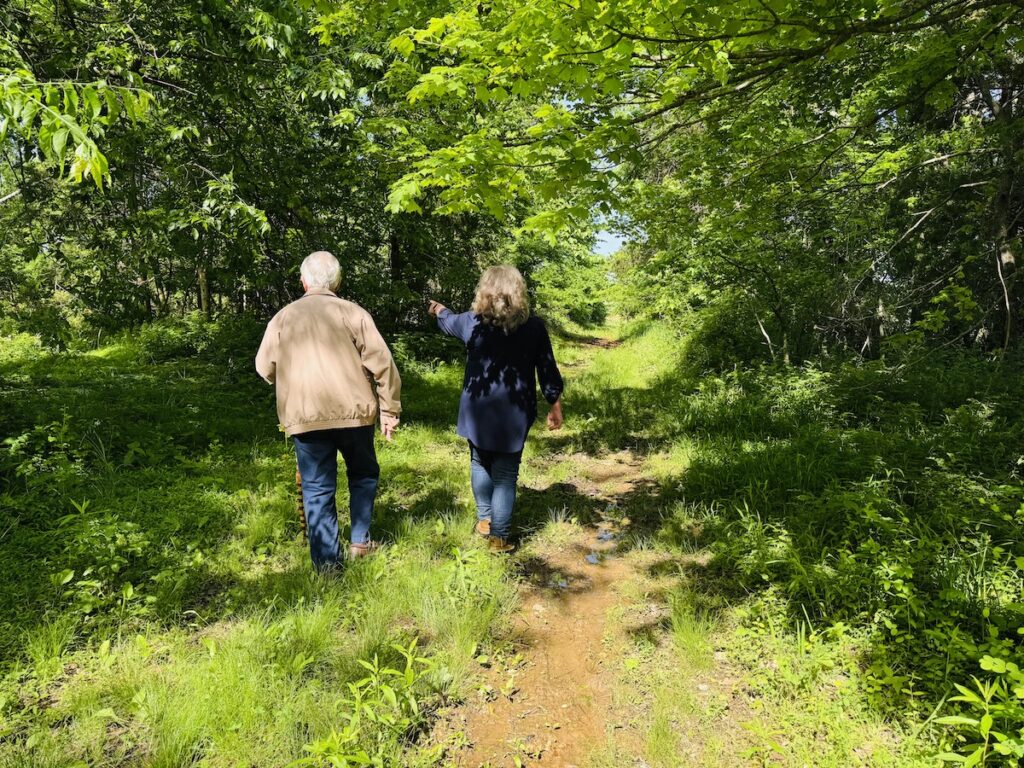
The likely location of the house in a small patch of woods was clearly visible on a sunny afternoon this March, delineated by clusters of daffodils in brilliant yellow bloom. The nearby cemetery, populated by a few marked headstones and several fieldstone, silently observes the passing decades from the shade of the woods, and has fallen into extreme disrepair.
One of the last family members to be buried there, Elizabeth Blair McGee, great-great-granddaughter of the elder Elisha Wiggins, has no marker to designate her final resting place beside that of her parents. Her nephew was the last interment there, in 2008, and his grave is marked with only a small funeral home marker.
The cemetery was not found on Find-A-Grave or any other cemetery database, suggesting the likelihood that very few living people are aware of its existence, and probably fewer if any are aware of the history of the family it contains.
Their story should be known and preserved.
Yvette Smithson Holmes, a native of southern Christian County, is an avid researcher of local history and genealogy. A graduate of Western Kentucky University, she previously worked in nursing. She is married to Bradley Holmes. They have five adult children and a granddaughter.
